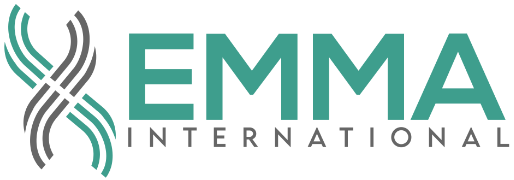On June 15, 2016, the FDA issued its final rule that revised certain medical device and biological labeling regulations. The rule finalizes the FDA’s 2013 proposed rule and affects biologics, IVDs, and medical devices regulated by 21 CFR Parts 660, 801, and 809. The revision allows for the inclusion of symbols in labeling without adjacent explanatory text (referred to as “stand-alone symbols”), so long as certain requirements are met. The rule also allows the use of the symbol statements “Rx only” or “Px only” for labeling of prescription devices [1].
The overall goal of the final rule is to harmonize U.S. and international labeling requirements by permitting the use of stand-alone symbols in labelling without adjacent explanatory text [2]. This allows domestic device labels to be consistent with those used on devices marketed in Europe and other foreign markets. It also makes labels more user-friendly and has the added potential benefit of reducing the costs associated with designing and redesigning the label for a medical device being marketed in the U.S., the EU, and other foreign markets.
The final rule provides three options for the use of symbols in device labeling:
- No use of symbols
- Use of symbols with accompanying explanatory text
- Use of stand-alone symbols if one of the following conditions is met [2,3]:
Scenario a) The symbol is from an FDA-recognized standard and is used in accordance with that standard. A symbols glossary must also be included with the device’s packaging that has the symbols and their definitions.
- A symbols glossary is also required for scenarios a) and b) below.
Scenario b) The symbol is taken from a standards development organization (SDO) that is not recognized by the FDA, and the symbol is used in accordance with the standard. In this case, manufacturers can judge if a symbol is likely to be read and understood by the customary users of their device, in compliance with section 502(c) of the FD&C Act.
Scenario c) The symbol is from an FDA-recognized standard but is NOT used in accordance with that standard. This is another scenario in which the manufacturer may determine if a symbol is likely to be read and understood by the customary users of their device in compliance with section 502(c) of the FD & C Act.
The following are the most significant changes to the final rule as compared to the proposed rule:
- Manufacturers are allowed to use symbols from non-FDA recognized standards (as long as certain requirements are met-detailed above).
- Clarification that the symbols glossary must “be included in the labeling for the device”, meaning that the glossary is either in electronic or paper form, and that the device labeling on/within the package has a prominent statement identifying the glossary’s location (e.g. manufacturer’s website).
- Addition of FDA’s definition of a standards development organization (SDO).
- Clarification on the required components of a symbols glossary.
The FDA believes that this new rule will provide a financial benefit to the industry. The agency estimates that the reduction in label-related costs could result in an annual savings of up to $25.5 million [1].
On the same day that this new rule was issued, the FDA updated its list of recognized standards for stand-alone symbols and published the revisions in a notice. The notice broadens the recognition of six standards while adding three new consensus standards that have additional stand-alone symbols [3,4].
Table 1-Modifications and New Entries to FDA’s list of Recognized Standards [2,5]
This Final Rule becomes effective September 13, 2016.
Examples of Device Labeling Symbols
References:
- Office of the Federal Register. (2016). Use of Symbols in Labeling. Available from: https://www.federalregister.gov/articles/2016/06/15/2016-13989/use-of-symbols-in-labeling
- U.S. Food and Drug Administration. (2016, July 25). Use of Symbols in Medical Device Labeling Final Rule [Webinar]. Retrieved from: http://www.fda.gov/MedicalDevices/NewsEvents/WorkshopsConferences/ucm510120.htm
- Mullen, A. (2016). FDA Issues Final Rule Permitting Use of Symbols on Device Labeling. Retrieved from: http://www.fdalawblog.net/fda_law_blog_hyman_phelps/2016/06/fda-issues-final-rule-permitting-use-of-symbols-on-device-labeling-.html
- Butschli, J. (2016). FDA Issues Final Ruling on Symbols in Device Labeling. Retrieved from: http://www.healthcarepackaging.com/trends-and-issues/regulatory/fda-issues-final-ruling-symbols-device-labeling
- Office of the Federal Register. (2016). Food and Drug Administration Modernization Act of 1997: Modifications to the List of Recognized Standards, Recognition List Number: 042. Retrieved from: https://www.federalregister.gov/articles/2016/06/15/2016-13990/food-and-drug-administration-modernization-act-of-1997-modifications-to-the-list-of-recognized






